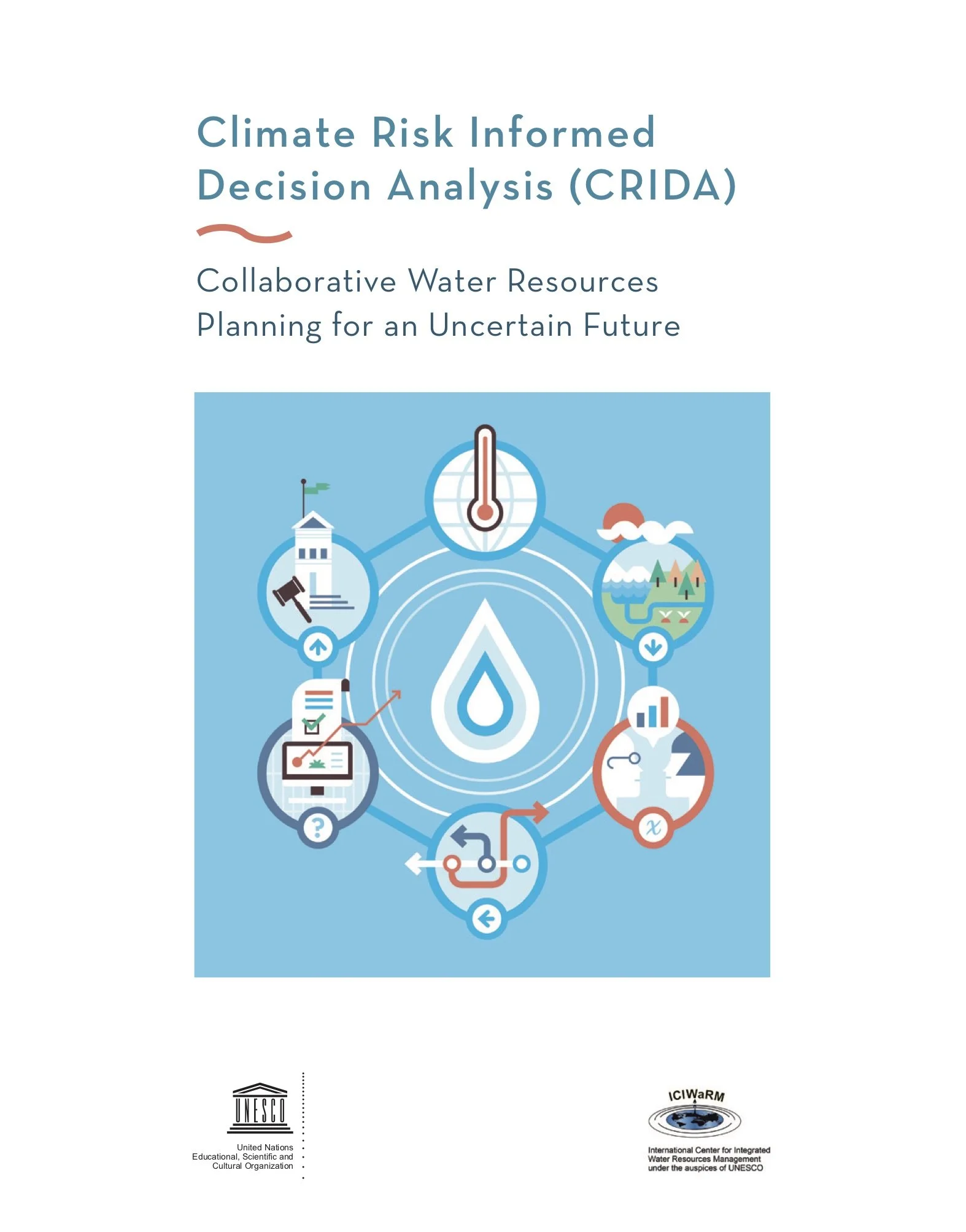Climate Risk Informed Decision Analysis (CRIDA): Collaborative Water Resources Planning for an Uncertain Future
Climate Risk Informed Decision Analysis, or CRIDA, supports decision making when uncertainty about future conditions exists, high levels of confidence in quantitative solutions are necessary, and/or low levels of tolerance to failure are present. CRIDA is a means for implementing holistic climate-resilient water resources solutions.
Although CRIDA published only in October 2018, the methodology has been applied in at least 20 countries to date. Published by UNESCO’s International Hydrological Program (IHP) and the International Center for Integrated Water Resources Management (ICIWaRM), CRIDA was developed through the sustained efforts of the US Army Corps of Engineers’ Institute of Water Resources, the Dutch Water and Infrastructure Ministry, Deltares, the Alliance for Global Water Adaptation (AGWA), and SESYNC.
CRIDA provides a structured, stepwise process for technical professionals to navigate the decision making spaces between senior decision makers and stakeholders. Based on the level of future uncertainty, CRIDA supports the development of robust and/or flexible solutions. CRIDA also explicitly acknowledges the critical significance of governance and eco-hydrological systems to achieving holistic, sustainable, and resilient solutions.

